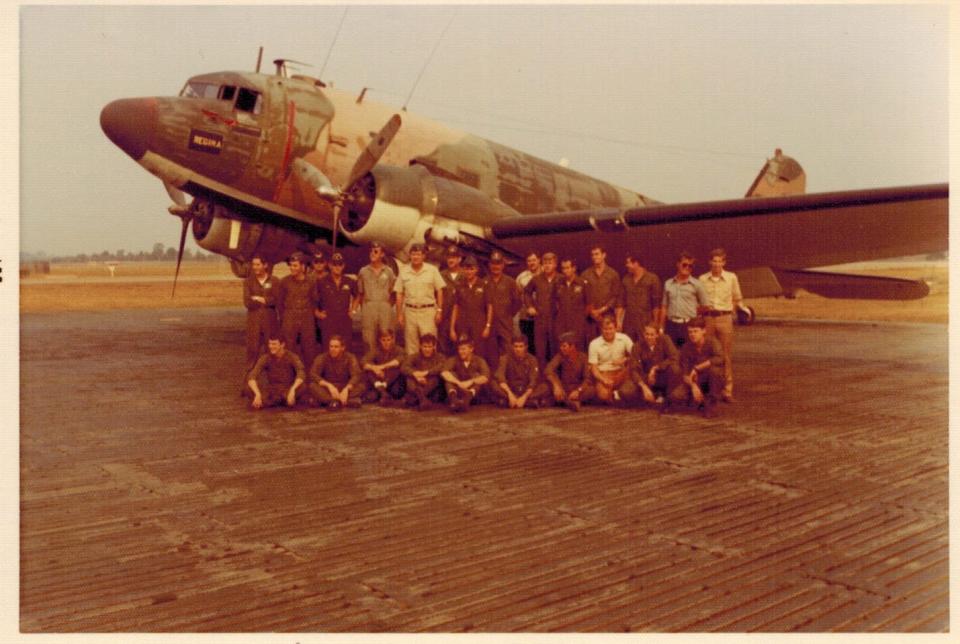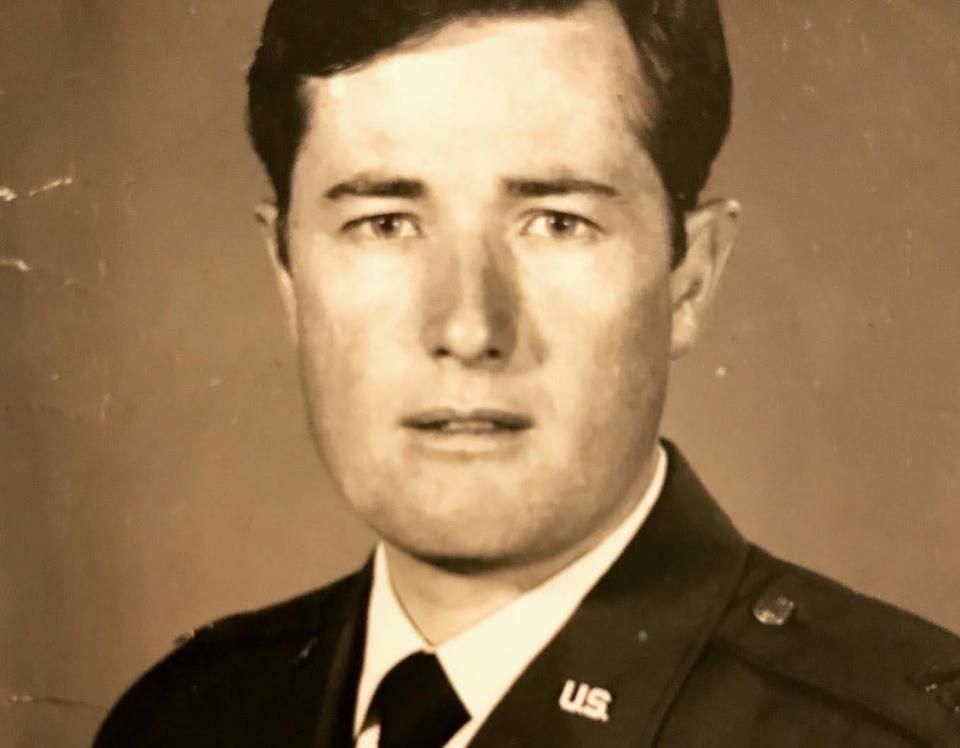50 years later, peace treaty that was supposed to end Vietnam War still haunts my family
- Oops!Something went wrong.Please try again later.
Jan. 27 marks 50 years since the signing of the Paris Peace Accords that tried and failed to end the Vietnam War.
About a week after the treaty was signed, an unarmed secret reconnaissance flight named Baron 52 operated by the U.S. Air Force was shot down over the Ho Chi Minh Trail in southern Laos. Though Laos was a neutral country during the Vietnam War, the United States dropped more than 2.5 million tons of bombs there in an attempt to slow the movement of supplies and people into neighboring Vietnam.
Baron 52 was downed at a critical time. Secretary of State Henry Kissinger was urgently finalizing negotiations in Paris as President Richard Nixon’s attention turned to Watergate.
Missing in action from Vietnam War
Resulting from the accords, Operation Homecoming commenced on Feb. 12, 1973, with 591 American prisoners of war (POWs) scheduled to return home. The men of Baron 52 were not among them.
My father, Michael Moore, was a fellow pilot in the Baron 52 squadron but was on leave when the flight was shot down. He returned to base in Thailand just as the first POWs were released and was devastated to learn of the lost seven crew members and the shootdown's significant timing.
America's secret war in Laos: I helped clear unexploded bombs in my birthplace to save the next generation
America's longest war: Female Afghan soldiers helped us. Washington needs to step up for them.
Baron 52’s missing were not on any negotiated lists. Only 10 of the returning POWs claimed to have been officially captured in Laos, even though there were reportedly several hundred Americans downed in Laos still missing during Operation Homecoming.
MIA families and fellow squadron members were devastated to discover that their missing family members were not part of Operation Homecoming that spring. The League of Wives, which had lobbied and advocated for the POWs' treatment and return, evolved into a new organization, the National League of Families of Prisoners and Missing, accepting the baton to hold the Defense POW/MIA Accounting Agency to its mission of the “fullest possible accounting” of those missing from the war in Vietnam.
That phrase is an essential lens when evaluating these efforts over 50 years. Operation Homecoming provided accounting of those lost in Vietnam, but less so for those lost in Laos and Cambodia.

Baron 52’s crew were soon labeled as missing, bodies unrecovered, with little evidence to prove it, leaving questions swirling for decades about the swift closure of the case due to its critical political timing.
And though the peace treaty was signed in 1973, war continued for two years until Saigon fell to northern Vietnamese communist forces.
Senate investigation into POWs, MIAs
As President George H.W. Bush pushed to open trade relations with Vietnam in the early 1990s, a deeper analysis was made, even if mostly for show, by the Senate POW/MIA Affairs Committee.
Opinion alerts: Get columns from your favorite columnists + expert analysis on top issues, delivered straight to your device through the USA TODAY app. Don't have the app? Download it for free from your app store.
The panel and its co-chairs, Sens. John Kerry and Robert Smith, spent more than a year conducting over 1,000 interviews and holding public hearings – including deep inquiries into Baron 52. An investigative team visited the crash site in Laos, but the trip yielded little physical evidence to prove the deaths of the seven men who were not recovered.
‘Remembrance is vital’: Honoring 40 years of the Vietnam wall
We're still living with 9/11: Like we're learning to live with COVID-19
One tooth, a few tiny bone fragments and a few dog tags and pistols were proclaimed to be proof they all died in the crash. Loved ones were incredulous because the tooth and bone fragments were not DNA tested, yet they were told that it was inconclusive whether the bone fragments were of human origin.
Feeling there were no options left, families grudgingly went along with a group interment in Arlington National Cemetery with full military honors in 1995.
Sen. Smith questioned the validity of the burial at a hearing of the POW/MIA cases.

My father was haunted by the crash. It fed his post-traumatic stress disorder and survivor’s guilt endlessly for 44 years, my entire life, before his passing. I recall him being glued to C-SPAN watching the hearings in the 1990s. The disappointment of that exercise devastated him; his mental health spiraled for years afterward.
In 2020, after researching the shootdown, I joined forces with the family of one of Baron 52’s missing. Air Force Sgt. Joseph Matejov’s family has pushed for clear answers since 1973.
Together, we want to spotlight this incident due to its important context in the 50th anniversary narrative for the Paris Peace Accords and Operation Homecoming. The downed flight had the potential to derail the Vietnam War negotiations Kissinger and Nixon had worked on for years and so desperately needed as the heat of the Watergate scandal increased.

Please remember those lost on the Baron 52 flight and the families, friends and colleagues who still mourn them five decades later. Let us not forget the sacrifices of every war, but especially those wars that lacked the fanfare and appreciation our men and women in uniform so deserved.
Remember not only those who came home, but also those who never did.
Support veterans in your circle and support nonprofits like Legacies of War, an organization that educates the public about the American secret war in Laos and works to remove unexploded ordnance still impacting lives today. I volunteered and then joined the board because our missions aligned – to amplify stories from the secret war in Laos.

Heather Atherton, communication professional and proud daughter of a Vietnam War veteran, is on the Board of Directors of Legacies of War. Follow her on Twitter: @athertonpr
You can read diverse opinions from our Board of Contributors and other writers on the Opinion front page, on Twitter @usatodayopinion and in our daily Opinion newsletter. To respond to a column, submit a comment to letters@usatoday.com.
This article originally appeared on USA TODAY: Vietnam War didn't end with treaty. For families of MIA, it never did.

